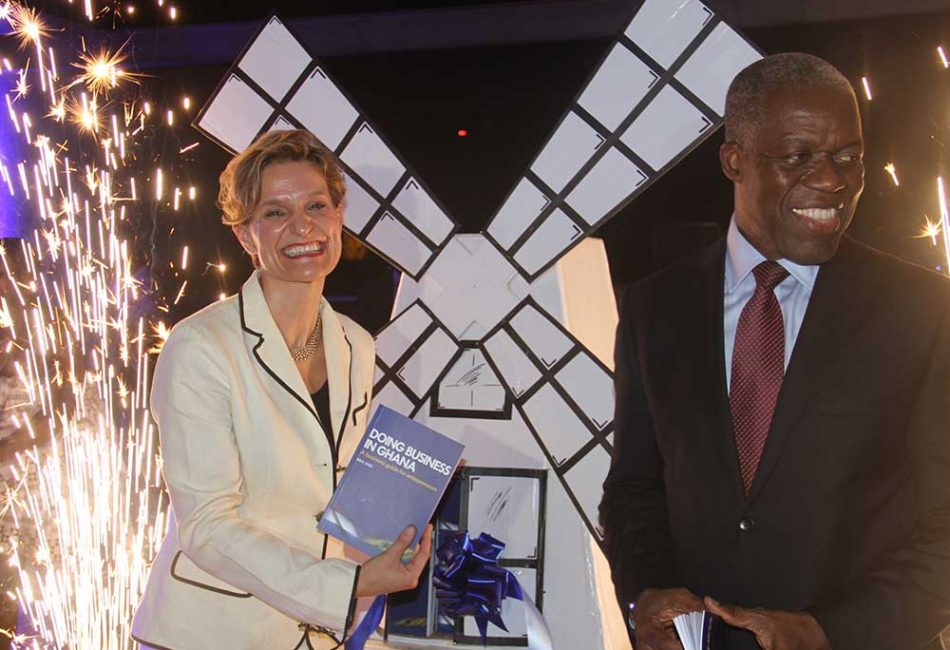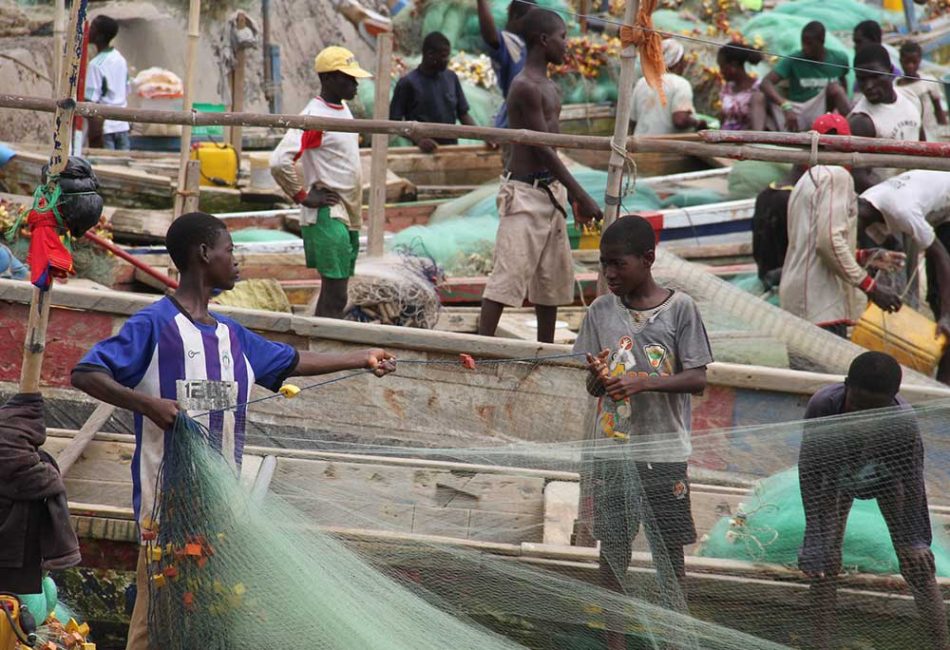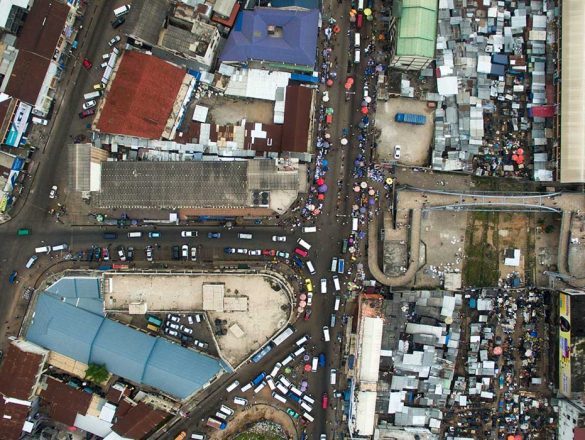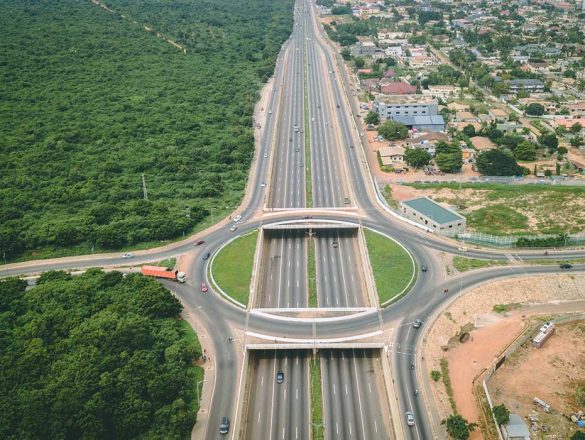
NABC and Ghana
The NABC, together with the World Trade Center Netherlands Alliance and the GNBCC organised a Multi-Sectoral Trade Mission to Ghana in April 2023. Combined with the 53rd WTCA General Assembly, attended by WTC business delegations from all over the world, the mission gave room to connect with some of the WTC’s 320 offices in 90 countries. The trade mission to Accra and Tema explored multiple industries with a strong focus on agriculture, renewable energy, water & infrastructure, and the waste industry.
In September 2020, the NABC, organised the first event of the African Policy Dialogue (APD) on ‘The Way Forward for Sustainable Youth Employment in Ghana’ in Accra, Ghana. The main findings of the stakeholder engagement session have been summarized in an advisory report.
NABC has for several decades been active in promoting economic development in Ghana. In the last five years, NABC has executed approximately 15 activities in Ghana. These activities are concerned with either private sector development or labour market development.
Private sector development entails activities oriented towards furthering the growth of economic sectors. For example, between 2014 and 2017 NABC and our partners implemented the GhanaVeg programme. The initiative sought to improve productivity and facilitate efficient markets for Ghana’s vegetable sector and attract youth into the sector. The Ghanaveg Programma was followed up by the HortiFresh West Africa programme, from 2018-2022. NABC supported the Hortifresh program with trade promotion activities such as trade missions and (virtual) sourcing missions. The last virtual sourcing mission to Ghana was in March 2022. Similarly, in cooperation with our local partners, NABC is involved in activities aimed at modernising the poultry sector to improve productivity and generate employment.
Labour market development activities are directed towards reducing barriers to labour market participation and equitable employment outcomes for youth and women. For example, through the Women and Youth Economic Empowerment project (2019/2020), NABC and our partners addressed discriminatory policies in the public and private sectors that hinder women and youth’s employment outcomes.
Since 2015, NABC has a strong collaboration with the Ghana Netherlands Business and Culture Council (GNBCC), which seeks to represent the business interests of both Ghanaian and Dutch companies.
You can find the address and contact persons of GNBCC at the Offices page.

Investment Climate
Ghana has enjoyed a stable and democratic government over the last two years, reflected in the thriving economy which has grown, on average, 7% since 2017 until the pandemic crimped development to a mere 0.4% in 2020. However, in the third quarter of 2021, the Ghana Statistical Service reported 6.6% growth in GDP, indicating a strong recovery. Ghana ranks as one of the most attractive locations for doing business in Africa with a fast-developing financial sector, high accessibility with good air, water and land connections and central to the Economic Community of West African States (ECOWAS). Home to one of the highest literacy rates in West Africa, a competitive and educated labour force, a growing population and middle class and a strong resource pool provide ample opportunities for investors.
Ghana’s proactive development is seen in programmes like the Ghana COVID-19 Alleviation and Revitalization of Enterprises Support (Ghana CARES) and Ghana’s National Adaptation Plan Process launched in 2020, developed to combat the economic effects of the pandemic and design strategies for resilience against the possible impacts of uncontrollable events (climate change and health crises). The fiscal deficit has narrowed, inflation has come down, and GDP growth has rebounded, driven primarily by increases in oil production. However, the economy remains highly dependent on the export of primary commodities such as gold, cocoa, and oil/gas, and consequently is vulnerable to potential slowdowns in the global economy and commodity price shocks.

The government of Ghana is seeking to diversify and industrialise, through agro-processing, mining and manufacturing. It has made attracting foreign direct investment (FDI) a priority to support its industrialisation plans and overcome an annual infrastructure funding gap of at least USD 1.5 billion. However, due to Ghana possibly co-ordinating with creditors in order to restructure its high government debt, this could incur losses for private-sector creditors.
The investment climate in Ghana is welcoming to foreign investors. There is no discrimination against foreign-owned businesses. Investment laws protect investors against expropriation and nationalisation and guarantee that investors can transfer profits out of the country. Corruption is also low, especially compared to West African counterparts.
Among the most promising sectors are agribusiness; food processing; textiles and apparel; downstream oil, gas and minerals processing; and mining-related services subsectors. The Dutch government encourages Dutch companies to engage in agribusiness, food processing, waste management and circular economy sectors. For more information on these sectors please refer to the reports at the bottom of the page.
The government has acknowledged the need to foster an enabling environment to attract FDI and is taking steps to overhaul the regulatory system and improve the ease of doing business, maintain fiscal discipline, combat corruption and promote better transparency and accountability.
Efforts to boost FDI are coordinated by the Ghana Investment Promotion Centre, a state agency mandated with creating an attractive incentive framework and establishing a ‘transparent, predictable and facilitating environment’ for investors. The centre registered 122 projects in 2023, with an FDI component of $649.58M. The services sector was the largest earner of foreign capital, followed by general trade and manufacturing.
Investment Climate Key Indicators & Metrics:
| Measure | Index/Rank | |
| Corruption Perceptions Index | 2023 | 70 of 180 |
| Economic Freedom Index | 2024 | 104 of 190 |
| Global Innovation Index | 2023 | 99 of 132 |

Challenges
Among the challenges hindering foreign direct investment are: burdensome bureaucracy, costly financial services, underdeveloped infrastructure, ambiguous property laws, expensive power and water supply, high costs of cross-border trade, shifting policy environment and lack of transparency. Inflation in Ghana also increasing and the dependence on few commodities expose the economy to global price shocks.
Despite these challenges, Ghana’s skilled labour force, abundant raw materials (gold, cocoa, and oil/gas), security and political stability make it stand out as one of the better locations for investment in sub-Saharan Africa.
Diplomatic Relations
Ghana and the Netherlands have maintained warm and cordial relations with both countries having resident Ambassadors in each other’s capital. Over the years the Netherlands continued to build upon its solid relations with Ghana to support Ghana’s economic prosperity objectives. The Dutch Aid to Trade policy is in line with the Ghana Beyond Aid Policy, which has the ambition to finance its own development and economic ties gradually replacing official development aid (ODA). The Netherlands and Ghana are working together productively on inclusive growth.
The Netherlands also created incentives for the Ghanaian and Dutch private sector to invest in clean drinking water, clean and safe sanitation and waste recycling. These efforts showed good results meeting targets and in some cases exceeding them. While working on a responsible and durable transition from aid to trade, the Netherlands in Ghana also visibly contributed to a number of Sustainable Development Goals (i.e. 6, 8, 12 and 16).
Netherlands
Embassy
As of September 2021, H.E. Mr. Jeroen Verheul is Ambassador of the Kingdom of the Netherlands to the Republic of Ghana. For more information (English): www.nederlandwereldwijd.nl/landen/ghana/over-ons/ambassade-in-accra.
Ghana
Embassy
The current Ghanaian Ambassador in the Hague is H.E. Mr. Francis Danti Kotia. For more information, please visit: www.ghanaembassy.nl
Presence of Dutch companies
The total number of Dutch companies active in Ghana is estimated at between 100 and 150.
Webinars
26th May, 2020. Doing Business in Ghana. The recording is available via our YouTube channel.
Reports
Arne Doornebal
- Algeria, Botswana, Ghana, Morocco, Tunisia, Uganda
- arne.doornebal@nabc.nl


